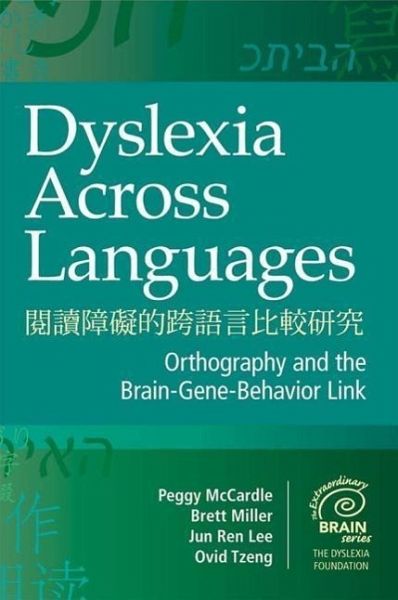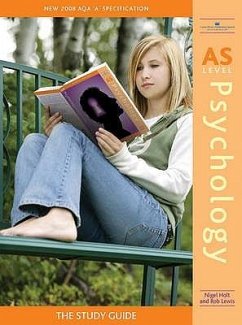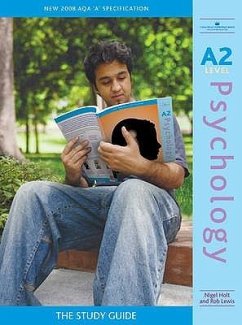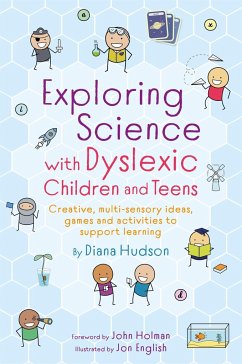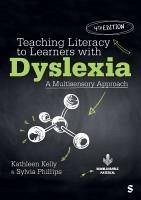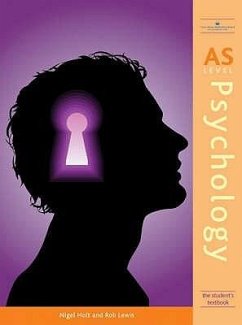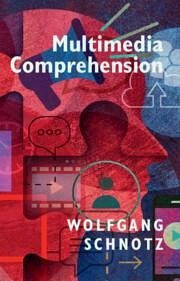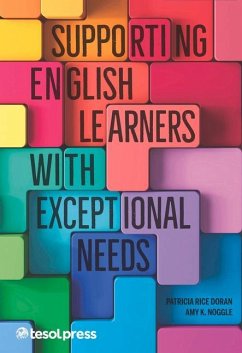Peggy McCardle, Ph.D., M.P.H., Owner, Peggy McCardle Consulting, LLC Peggy McCardle is a private consultant and an affiliated research scientist at Haskins Laboratories. She is the former chief of the Child Development and Behavior Branch of the Eunice Kennedy Shriver National Institute of Child Health and Human Development (NICHD), U.S. National Institutes of Health, where she also directed the Language, Bilingualism, and Biliteracy Research Program and developed various literacy initiatives. Dr. McCardle is a linguist, a former speech-language pathologist, and, in her remote past, a classroom teacher. Her publications address various aspects of public health and developmental psycholinguistics. The recipient of various awards for her work in federal government, including a 2013 NICHD Mentor Award, she also was selected in 2013 to receive the Einstein Award from The Dyslexia Foundation. Her publications address various aspects of public health and developmental psycholinguistics (e.g., language development, bilingualism, reading, learning disabilities) . Dr. McCardle has taught scientific and technical writing and has extensive experience developing and coediting volumes and thematic journal issues. Brett Miller, Ph.D., Program Director, Eunice Kennedy Shriver National Institute of Child Health and Human Development (NICHD), 6100 Executive Boulevard, Suite 4B05, Rockville, Maryland 20852. Brett Miller oversees the Reading, Writing, and Related Learning Disabilities research portfolio at the National Institutes of Health (NICHD), which focuses on developing and supporting research and training initiatives to increase knowledge relevant to the development of reading and written-language abilities for learners with and without disabilities. Dr. Miller also codirects the Language, Bilingualism, and Biliteracy Research Program, which focuses on language development and psycholinguistics from infancy through early adulthood; bilingualism and/or second-language acquisition; and reading in bilingual and/or English-language-learning children and youth. Dr. Lee is an experimental psychologist by training. He is working on the issues of reading acquisition, reading disabilities, reading instruction, and bilingualism. Dr. Tzeng is a cognitive neuroscientist who is recognized for his works on memory and language processing. Emphasizing reading as a biological system, he investigates reading acquisition and skilled reading processes from a neuroplasticity perspective, using various neuroimaging techniques, in order to uncover their universal and language-specific principles. Diane August, Ph.D., is an independent consultant as well as a senior research scientist at the Center for Applied Linguistics in Washington, D.C. At the Center for Applied Linguistics, she directs a large, federally funded study investigating the development of literacy in English language learners. She is also the Staff Director for the National Literacy Panel on Language Minority Children and Youth. As an educational consultant, Dr. August has worked in the areas of literacy, program improvement, evaluation and testing, and federal and state education policy. She has been a senior program officer at the National Academy of Sciences and Study Director for the Committee on Developing a Research Agenda on the Education of Limited English Proficient and Bilingual Students. Dr. August worked for 10 years as a public school teacher and school administrator in California. Subsequently, she served as Legislative Assistant in the area of education for a United States Congressman from California, worked as a grants officer for the Carnegie Corporation of New York, and served as Director of Education for the Children's Defense Fund. In 1981, she received her doctorate in education from Stanford University, and in 1982, she completed a postdoctoral fellowship in psychology, also at Stanford. Dr. Fitch received her B.S. from Duke University and her Ph.D. in biobehavioral sciences (concentration in developmental psychobiology) from The University of Connecticut. Her research centers on understanding how the disruption of early brain development underlies subsequent cognitive disabilities, with a particular focus on risk factors for language-relevant skills. Topics of research include animal models of brain damage typical of premature and term birth insult, as well as animal models for genetic risk factors associated with cognitive disability. Albert M. Galaburda, M.D., is a cognitive neurologist at Beth Israel Deaconess Medical Center and, since 1995, the Emily Fisher Landau Professor of Neurology (Neuroscience) at Harvard Medical School. In addition, he serves as Director, Office of Diversity, Inclusion, and Career Advancement at BIDMC and as Co-director, Mind, Brain, and Behavior Interfaculty Initiative at Harvard University. Dr. Galaburda is a native of Chile and a graduate of Boston University's Six-year Liberal Arts-Medicine Program (1971). After medical school he trained in Internal Medicine and in Neurology at Boston City Hospital (now Boston Medical Center). From 1979 until 2015, he directed a NIH-funded bench laboratory on the fundamental causes of learning disorders, especially language based learning disabilities, and from 1992 until 2015, he directed the Division of Cognitive Neurology at BIDMC. He has written extensively on cerebral lateralization and on dyslexia. He has published more than 230 original articles, reviews, book chapters and books, and has lectured extensively locally, nationally and abroad on the general field of cognitive neurology. He has also been recognized for his work with several prizes, including the Pattison Prize in Neuroscience, the IPSEN Prize in Neural Plasticity, the American Academy of Neurology Decade of the Brain keynote speaker award, the Behavioral Neurology Society of the AAN's Lifetime Achievement Award, the International Dyslexia Association's Samuel T. Orton Award, and others. Since January of 2015, Dr. Galaburda devotes half of his time to diversity and inclusion, as well as the career advancement of students and physicians underrepresented in medicine. Dr. LoTurco is Professor of Physiology and Neurobiology at the University of Connecticut, Department of Physiology and Neurobiology in Storrs, CT. Heikki J. Lyytinen, Ph.D., Professor, Department of Developmental Neuropsychology, University of Jyväskylä, 40014 University of Jyväskylä, Jyväskylä, Finland. Dr. Lyytinen is the principal investigator of the Jyväskylä Longitudinal Study of Dyslexia, which has revealed how to identify children in need of support in their reading acquisition. This work motivated him to lead the development process of Graphogame technology, which has now initiated worldwide efforts to provide mobile learning game-based support globally via the Grapholearn Initiative. W. Einar Mencl, Ph.D., Director, Neuroimaging Research, Haskins Laboratories, 300 George Street, New Haven, CT 06515. Dr. Mencl received his Ph.D. in experimental psychology from Dartmouth College in 1994. His expertise is in experimental design and analysis of functional and brain imaging data and applying techniques such as functional magnetic resonance imaging and magnetoencephalography toward the understanding of reading development and reading disability. Other interests include auditory perception, music perception, and multivariate analysis of brain activation patterns. Charles Perfetti, Ph.D., Director, Learning Research and Development Center, University of Pittsburgh, 3939 Oâ (TM)Hara Street, Pittsburgh, PA 15260. Dr. Perfettiâ (TM)s central research interest is in the cognitive science of language and reading processes, including lower- and higher-level processes and the nature of reading ability. His current research program addresses several related issues, including the nature of reading skill, the role of word knowledge in comprehension, comparative studies of reading across writing systems, and second-language learning, including studies of adults and children and using behavioral, electrophysiological, and functional magnetic resonance imaging methods. Kenneth R. Pugh, Ph.D., President, Director of Research, and Senior Scientist, Haskins Laboratories, 300 George Street, Suite 900, New Haven, Connecticut 06511. Kenneth R. Pugh--in addition to his positions at Haskins Laboratories, a Yale University and University of Connecticut affiliated interdisciplinary institute that is dedicated to the investigation of the biological bases of language--holds positions at the University of Connecticut, Yale University, and the Yale University School of Medicine. He directs the Yale Reading Center, is a member of the Scientific Advisory Board for the International Dyslexia Association and the Rodin Remediation Academy in Stockholm, and has served as a peer reviewer at the National Institutes of Health and as a panel member at the National Research Council of the National Academies. His research in cognitive neuroscience and psycholinguistics focuses on the neurobiology of typical and atypical language and reading development. Dr. Rosen is Associate Professor of Neurology at the Beth Israel Deaconess Medical Center in the Department of Neurology in Boston, MA. Richard K. Wagner, Ph.D., Robert O. Lawton Distinguished Research Professor of Psychology and W. Russell and Eugenia Morcom Chair, Florida State University; Tallahassee, Florida; rkwagner@psy.fsu.edu. Dr. Wagner also is a cofounder and the current associate director of the Florida Center for Reading Research. He earned a Ph.D. in cognitive psychology from Yale University in 1985. He previously earned a masterâ (TM)s degree in school psychology from the University of Akron. His major areas of research interest are dyslexia and the normal acquisition of reading. He currently is the principal investigator of the Multidisciplinary Learning Disability Center funded by NICHD.
